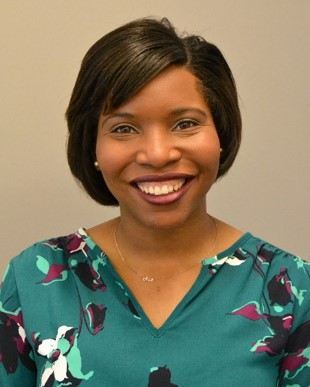The Student Wellness Center is working to promote healthy body image for Ohio State students through its student-facilitated Body Project workshops held in small groups.
The Body Project started at Ohio State Autumn Semester. It stems from a national program to promote a positive body image among women, that challenges society’s challenging the thin ideal in society, said Michaela Martin, the wellness ambassador coordinator for the Student Wellness Center.
“[We are] seeing an increase of media images, disordered eating, and unhealthy images or mindsets about our body, so we thought it would be a great idea to bring to our campus,” Martin said.
The Body Project national organization provides participating colleges with guidance for student-facilitators in leading the conversation, said Janele Bayless, the program coordinator for nutrition education at the Student Wellness Center.

Michaela Martin, the wellness ambassador coordinator for the Student Wellness Center, said the Body Project focuses on body image pressure from family and friends, as well as society. Credit: Courtesy of Michaela Martin.
“It can feel vulnerable and transparent,” she said, “but the way that everything is scripted, it really is geared more towards challenging the thin ideal, how does media play an influential factor in body image, it’s really specific and focused.”
To promote a healthy body image, the Body Project has two sessions in groups, two hours each, separated by a week of reflection and take-home materials.
“It’s one of the few evidence and research-based national body-image programs,” Martin said.
During the workshop, students interact with each other and facilitators in an open dialogue about societal pressures and their own body image.
“They have an activity where the facilitators will say something along the lines of, ‘Oh, I’m really trying to lose weight before spring break, and I haven’t been eating’… and the participants get to practice combatting those things,” Martin said.
Besides societal pressure, the workshop focuses on pressure from family and friends, Martin said.
“We love our families and we love our mothers, but sometimes there’s statements that they say that resonate in our head, and you just can’t get rid of those,” she said.
Part of the participants’ take-home work includes writing a letter to a young girl about their experiences with body image, including tips to keep a positive self-image, as well as a personal at-home reflection.
“In as minimal clothing as possible, you write down 15 to 20 characteristics about yourself, looking in a mirror,” Martin said, describing the at-home reflection. “They ask that at least half of them be physical characteristics and the other half are personality traits.”
Students that participate in the workshop take a pre-test and post-test identifying themselves with a 10-digit code, and 30 days after the last workshop, the students receive the post-workshop questionnaire.
“[The post-test is] to see if those behavior changes stuck with them, what they learned, and then how did their mindset and their behaviors change from pre to post,” Martin said.
The Body Project has been implemented on more than 100 college campuses in the United States, according to the Student Wellness Center website for the program.
Currently, the Body Project national organization’s script is mainly focused on women’s body image and self-esteem, but it is working toward creating a workshop and accompanying script for men, Martin said.
The workshop is available to pre-organized groups at Ohio State. Specific dates are available to individuals who are interested in participating without a group. The national organization trains university staff and faculty, who then train student-facilitators, Martin said.
Having conversation on body image is way to unite women, she said.
“You’re making yourself very vulnerable with, potentially, complete strangers, or maybe people you’re not on a personal level with; and then leaving ready to take this change with you and hopefully spread it amongst your communities,” Martin said.



